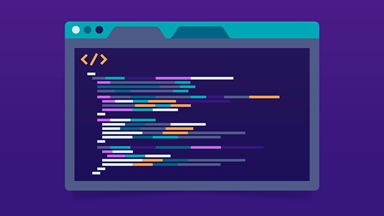Loading component...
At a glance
- The demand for specialist programming and data analytics skills has been growing for more than five years.
- The uncertain financial scenarios brought about the pandemic have boosted this demand further across multiple industries and sectors.
- The tightening of rules around data privacy and security is likely to also drive increased demand for skills and expertise related to information governance frameworks.
By Rachel Williamson
A new report from recruitment agency Robert Half and job market analytics firms Burning Glass, The Demand for Skilled Talent, analyses online job postings for finance and accountancy roles over the past five years. The findings are surprising.
The largest uptick in technical skill demand is for programming language Python (up by 33 per cent) and the process development framework Scrum (up by 2.6 per cent).
These tech skills are delivering big pay rises. Payroll specialists with System Application and Product in Processing (SAP) experience now command up to 4 per cent more in base salary than those without, while financial managers with enterprise resource planning (ERP) skills now earn 8 per cent more than their less skilled counterparts.
Employers across all industries are desperate for people who can analyse data, with demand up by 28 per cent. To them, accountants and finance professionals with digital skills offer a speed advantage.
“Everyone is trying to use data as best they can, but delivering reports that allow management to do real-time, or self-service reporting are far more important,” says Paul Winter, partner in charge of KPMG's CFO Advisory business.
Winter is seeing demand for greater coding skills in finance teams coming from another arena too – regulators.
“Regulators are asking to see more data, particularly in the financial services space, banking and superannuation,” he says.
COVID-19 causes skills crisis
Demand for specialist digital skills like Python, SAP, ERP, Structured Query Language (SQL) and Scrum have been growing for more than five years, but the COVID-19 pandemic caused a real crunch, says Robert Half director Andrew Brushfield.
“Businesses have become increasingly reliant on them over the past 18 months in order to agilely analyse and respond to uncertain financial scenarios,” he says.
“The talent to fill this demand is in short supply, which is pushing employers to increase salary offers for skilled professionals by 10 to 20 per cent.”
For small accounting firms, the pandemic meant clients needed to have their books up to date to apply for government business grants such as JobSeeker, or urgent bank loans. This created an unexpected need for more hands on deck.
"Data is useless unless you can put it in a way that a CEO can use to adjust strategy and decide which next steps make sense. Very few accountants can present data in a compelling enough manner to make someone act on it."
Exacerbating the skills shortage is the lack of international migration, which shut off a vital supply of talent, caution among skilled employees about changing roles given the disruption of the past year, and accelerated demand for digital skills exceeding the ability of the domestic workforce to develop them.
This highlights the need for employers to upskill their existing workforce and think geographically outside the box to plug the gaps, Brushfield says.
“In order to overcome skills shortages, employers are increasingly turning to remote work to access talent outside their geographic area. This report found that there has been a 1924 per cent spike in remote work postings for finance and accounting professionals since the start of the pandemic,” he says.
Coding versus communication
However, not everyone wants an accountant who can code, says finance and accounting recruitment specialist Michael Edelstein CPA.
“To a degree these skills are in short supply, but they’re only in demand for certain categories of accountants in large corporations which are very data driven and want people who can extract the numbers to enable decisions in real time.
“Small businesses actually want an accountant to have business acumen rather than [to] be able to code,” he says.
Edelstein says, while technical skills can be learned, communication skills are an underrated talent among finance and accounting professionals.
“You can be a Python master, but that means nothing if you can’t communicate,” he says.
“Data is useless unless you can put it in a way that a CEO can use to adjust strategy and decide which next steps make sense. Very few accountants can present data in a compelling enough manner to make someone act on it.”
Winter agrees, adding that understanding data visualisation software such as Power Bi and Tableau is becoming increasingly important.
Skills of the future
The current demand for digital accounting skills will lead to a range of other essential areas of expertise among finance professionals.
Winter believes tightening rules around data privacy and security are setting the scene for skills around information governance frameworks to grow in demand.
“If people have access to more data, we need to make sure access is appropriate and people aren’t accessing it for purposes they shouldn't be,” Winter says.
However, Brushfield adds, the core emphasis for future technical qualities likely to make it on to the CPA skills list will be those that aid business planning and revenue generation, drive the creation of new products and services, facilitate the management and utilisation of data, and create efficiencies and stronger team collaboration for businesses.

